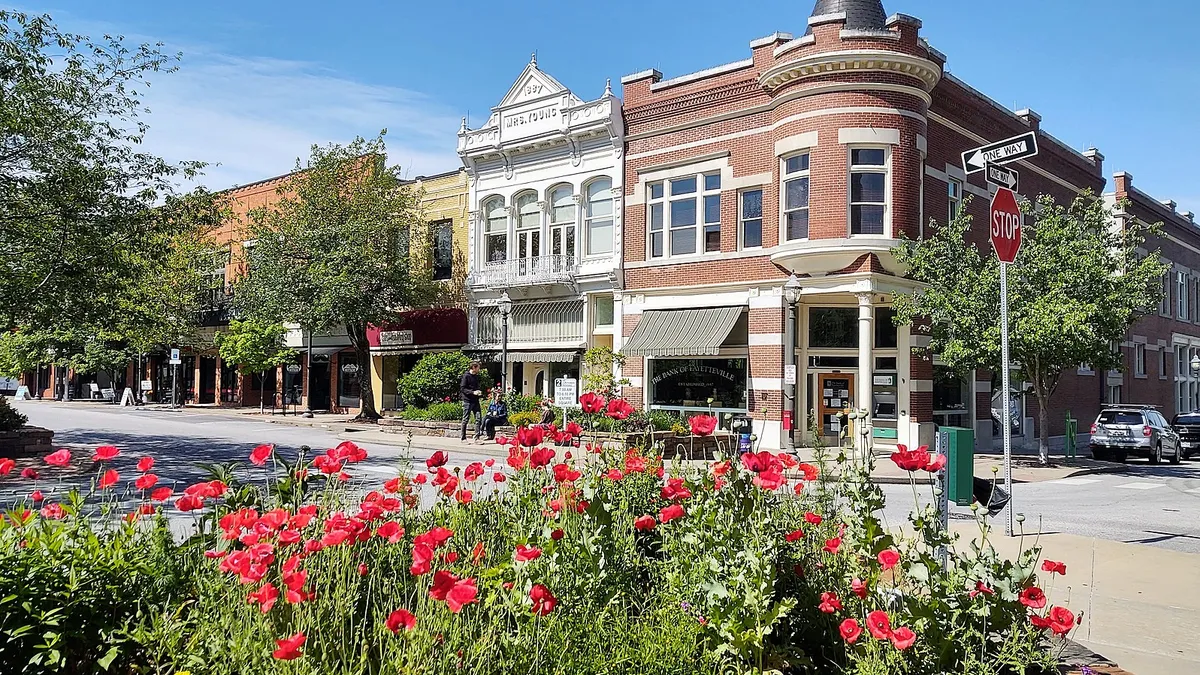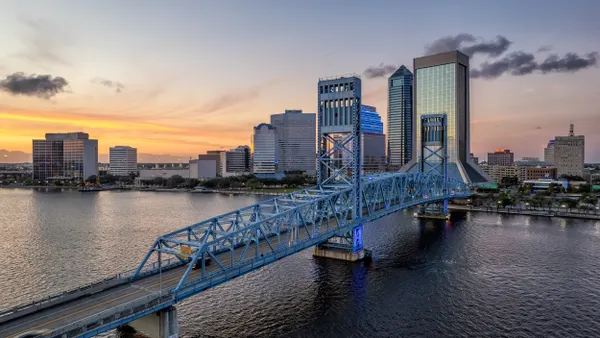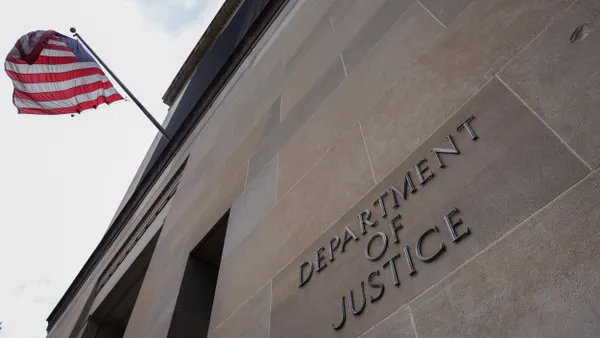UPDATED, Jan. 11, 2021: The Northwest Arkansas Council aims to lure remote tech workers and other entrepreneurs to relocate to the area with the promise of a bike and $10,000 in bitcoins. Northwest Arkansas, which includes the city of Fayetteville, is the first region to offer cryptocurrency to potential workers, according to the official announcement.
“Northwest Arkansas is one of the fastest-growing regions in the country, and we’re now seeing more explosive growth in our tech sector,” said Nelson Peacock, president and CEO of the Northwest Arkansas Council. “This expanded incentive offer — bitcoin and a bike — not only embraces the growing trend toward the use of cryptocurrency as a payment option by employers but also helps increase our pipeline of talent to benefit tech employers, startups, cities, local businesses and the region overall.”
This year’s offerings are the latest from the area’s Life Works Here program. The program’s initial incentive, which included a bike and $10,000, generated more than 35,000 global applicants. So far, about 50 recipients have moved to the region as part of the initiative, according to a spokesperson.
Dive Brief:
- The Northwest Arkansas Council announced it is investing $1 million over the next six months to attract remote STEAM (science, technology, engineering, arts, math) talent to the region through its Life Works Here initiative. Applicants will receive a $10,000 stipend and the choice of a bike or a free membership to local cultural facilities upon entering the program.
- Northwest Arkansas, which includes Washington and Benton Counties, is the home of major retailers such as Walmart and Tyson Foods. The council had been "looking for a long time" to attract more talent to the region for these employers, and saw an opportunity with the onset of COVID-19 to leverage urban migration and build that talent pipeline, said Council President and CEO Nelson Peacock. "Talent brings in more talent, so we're trying to build it that way," he said.
- The pilot program is expected to bring in "several dozens" of participants, Peacock said. After the pilot is complete, the council will assess findings to inform future iterations of the initiative.
Dive Insight:
The COVID-19 pandemic triggered a "great migration" of Americans moving away from high-cost coastal cities as flexible work options allowed them to ditch expensive rents for more affordable environments. This has prompted a slew of mid-tier cities to seize the opportunity of attracting remote talent through incentivized workforce relocation programs.
The Savannah Economic Development Authority in Georgia announced its workforce incentive program in June, offering remote tech workers up to $2,000 to reimburse relocation costs. Meanwhile, Topeka, KS hopped on the trend in September with its Choose Topeka Relocation Initiative, complemented by a $10,000 incentive for the purchase of a home.
Perhaps the leader of this trend is Tulsa, OK, which launched its Tulsa Remote program far before the pandemic in 2018. That program, which also offers a $10,000 incentive, had seen a 36% uptick in applications from March to October, with nearly 600 of those applications coming from the Bay Area.
Northwest Arkansas' Life Works Here initiative is unique in that it's a regional effort and offers incentives beyond a cash reimbursement. Peacock said these extra incentives — a bike from a local vendor or a cultural facility membership "for those that don't want to bike" — help to illustrate "the kind of life that you can have here." He said the region has invested a lot in its cycling infrastructure as well as its cultural institutions, therefore the incentives can help participants get involved when they arrive.
Peacock, who spent most of his career working in urban powerhouses like Washington, DC and Oakland, CA, said Northwest Arkansas has the same economic, social and cultural opportunities as major coastal cities, "and we do it at a lower cost of living and an easier lifestyle." In Fayetteville, the region's largest city and home of the University of Arkansas, the cost of living is 11% lower than the national average, with housing costs 24% below the national average.
Northwest Arkansas was also identified as one of just 10 U.S. metro areas expected to maintain economic growth above 3% annually through 2022, per a 2018 U.S. Conference of Mayors report. Peacock said its reputation of economic growth remains strong amid the pandemic, and is only expected to improve as the region prioritizes workforce development and tech upskilling programs.
While some coastal workers may be hesitant to relocate to an unfamiliar region such as Northwest Arkansas, more than 50% of its residents are people from other places, "so it's really a place of transplants, in many ways," Peacock said. The Northwest Arkansas Council also runs Engage NWA, a regionwide initiative to support efforts around diversity, equity and inclusion.
"We're trying to make sure that that we appeal to everyone. Whatever your situation is, you can come here and feel welcome," Peacock said. "That's a priority for our largest companies, a priority for all of our city leaders, and then a priority for the council. We're trying to stitch all of that together to make sure that we continue to be a place where people want to come."











